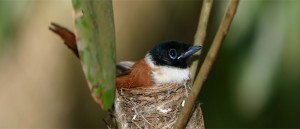
The School of Anthropology and Conservation is delighted to announce that we have been successful in three bids for research funding from the UK Government’s Darwin Initiative.
The Darwin Initiative is a UK government grants scheme that helps to protect biodiversity and the natural environment through locally based projects worldwide.
The initiative funds projects that help countries rich in biodiversity but poor in financial resources to meet their objectives under one or more of the following biodiversity conventions:
- the Convention on Biological Diversity (CBD)
- the Convention on International Trade in Endangered Species of Wild Flora and Fauna (CITES)
- the Nagoya Protocol on Access and Benefit Sharing
- the International Treaty on Plant Genetic Resources for Food and Agriculture
Our successful projects are:
Translocating conservation success and skills-exchange across four Indian Ocean countries.
Many global conservation success-stories originate from Seychelles and Mauritius. Remarkably, however, propagating these much-needed skill-sets elsewhere doesn’t happen naturally, particularly across low-income and island nations. Building upon previous Darwin-funded success, the project will implement three flycatcher reintroductions, and via a newly-established regional ‘training hub’, galvanising skill-sharing between four Indian Ocean countries.
Dr Freya St John, with the Royal Society for the Protection of Birds:
Investing in agroforestry options for forest restoration in Indonesia.
Indonesia has approximately 80 million hectares of exhausted logging concessions. Restoration of these forests is a high priority for biodiversity conservation. Working in the Harapan Rainforest (Hutan Harapan, HH) Ecosystem Restoration Concession (ERC) in Sumatra, the project will develop agroforestry options to reconcile conservation restoration goals with livelihood aspirations of local communities.
Marrying conservation with stakeholder aspirations in Borneo.
The project will help deliver social and ecological justice in Kalimantan, Indonesia, by improving understanding of linkages between ecological systems and human wellbeing, resulting in improved governance. For this, the project will develop datasets, increase awareness, and build vital capacity for participatory and evidence-based systems to allocate land for community forest management.
A huge congratulations from the School to the successful project leaders. These grants follow a number of successful research bids this term, more details of which can be found here: https://kentsac.wordpress.com/category/research/


